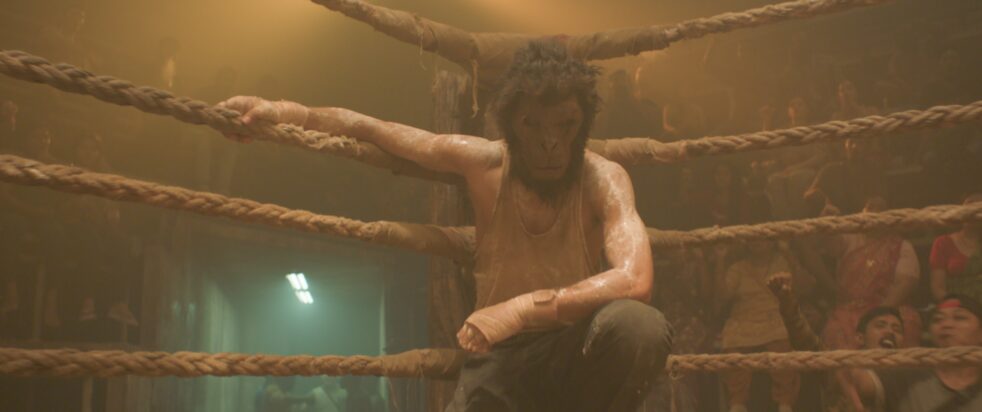“You like ‘John Wick?,’” an arms dealer asks. He walks to the wall, pulls down a handgun and smiles. “This is the same gun from the movie, but made in China.”
“Monkey Man” is no “John Wick” knockoff, though. Dev Patel, the director, writer and star of the film, has a passion that permeates the whole movie, turning “Monkey Man” into a memorable revenge flick that shows Patel’s love of action cinema without feeling too derivative of other movies. “Monkey Man” has its inspirations — you can point to nearly every scene and find another movie that did it first — but Patel the actor is so compelling as the lead that it carves out its own space in the genre. It is Patel, the director and the writer, who overstuffs “Monkey Man” and keeps it from greatness. Maybe he should have borrowed a little more from “John Wick.”
“Monkey Man” follows Kid, a quiet fighter in an underground fight club somewhere in the slums of India. He spends most of his time losing. Quickly though, the audience sees snippets of the death of Kid’s mother, and it becomes clear that he is hellbent on avenging her killing. But what happens when Kid goes on a rampage? He loses again. He’s no action hero. Not yet, at least. He then goes on a journey of self-discovery, finding for himself what he is truly fighting for.
The plot is simple enough, and it certainly does not stray from the time-honored revenge-thriller formula. But the film is visually unique. The camera darts around rooms, following quick character movements and gawking at the upper class’ debauchery. Its tight shots and frequent camera movements feel like a window into Kid’s inner thoughts — the audience sees what he sees and feels what he feels — a brilliant technique to add depth to a character with little dialogue. It even occasionally shifts into a first person perspective. The close shots and quick editing make the film feel claustrophobic, especially in the beginning, but as Kid gains skill and confidence, the shots widen, with fewer disorienting cuts. It is decisions like this that unveil Patel’s enormous potential as a director.
All this would not work at building any emotional connection if it was not for Patel’s performance. He is an exquisitely skilled actor, conveying complex emotions without saying a word, a vital part of “Monkey Man” given how little time characters have to talk. Patel used this same quiet pathos in “The Green Knight,” and it works perfectly here, too. He is a good director, but he is a masterful actor.
One caveat to “Monkey Man” is that there are fewer fight scenes than audiences might be expecting. However, when they come, they are brutal. Kid dismembers, stabs, and pummels enemies in creatively violent ways. None of these action scenes are particularly groundbreaking, although the fight club scenes have a unique visual flair, but each is still wildly entertaining and exceedingly competent, with certain moments sure to be entered into the action movie canon.
This makes it all the more disappointing that the film’s pacing is crippled by being so overstuffed. Patel admirably wants to make his film deeper than simply a beat-’em-up thriller, but after “Monkey Man” has tackled religion, politics, poverty, transphobia, trauma, self-acceptance and generational cycles of violence, the pacing has lost all inertia. It is not that Patel has wrestled with any of these ideas poorly, per se. He just needed to pick one or two. The film would feel more rhythmic in a way all action-thrillers need and less like it was pausing to “say something.”
However, “Monkey Man” is still a success. Patel has clearly poured his heart and soul into his film, with so many ideas it feels ready to burst, but enough good ones that “Monkey Man” feels like a movie impossible to dislike.
